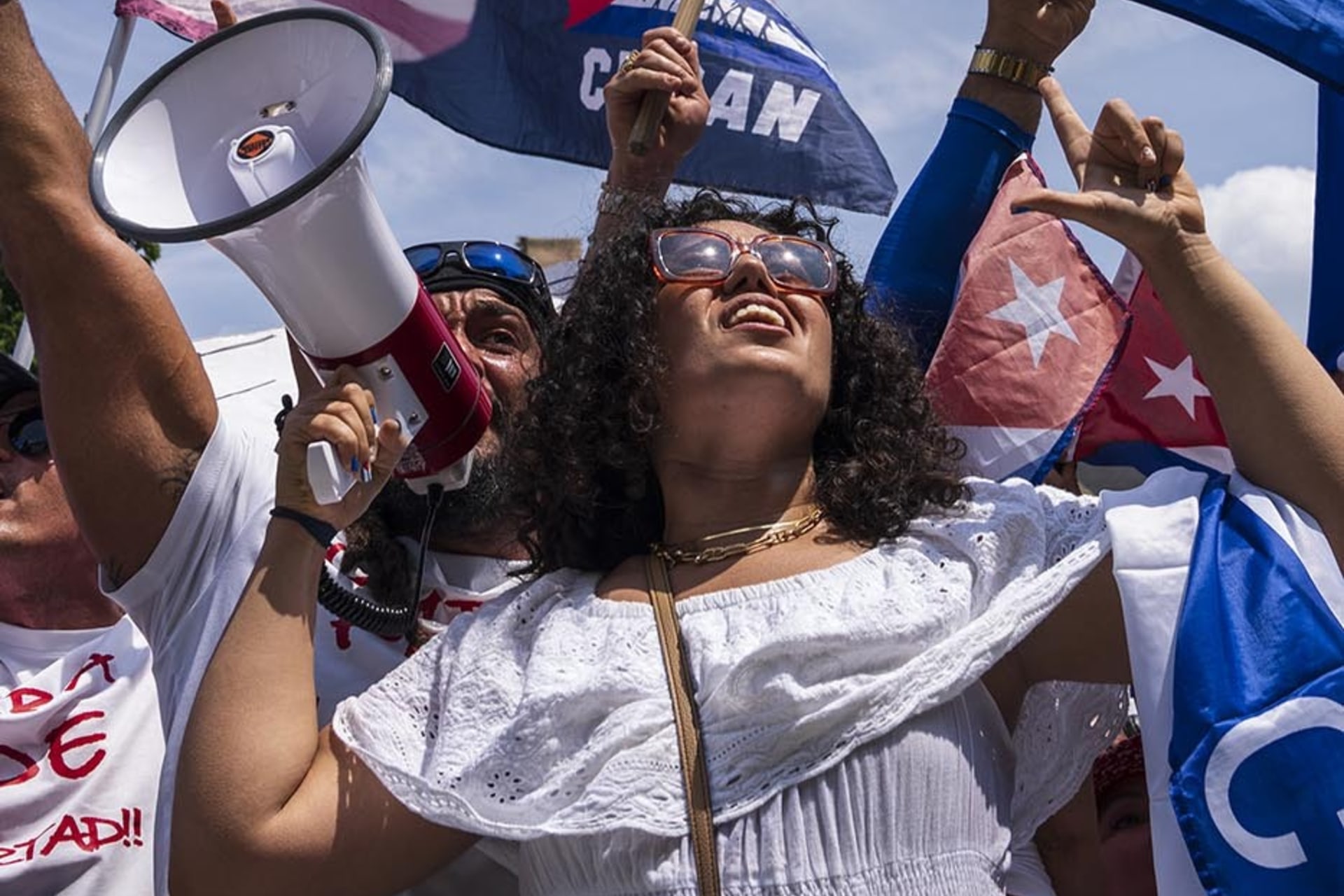Iraq’s Meddlesome Neighbors
Published
As American influence in Iraq wanes, Arab, Turkish, and Iranian influence over Baghdad will invariably rise.
This publication is now archived.
Introduction
Iraq is sandwiched between six states that hold competing views of what its future should resemble. Where some of Iraq’s neighbors see instability on their borders, others see opportunity. In Washington, the biggest worry is that the low-level civil war in Iraq might spread beyond its borders and engulf its neighbors, setting off a regional conflict or, worse, triggering a third world war. The presence of oil, millions of Kurds with no homeland, and an ascendant Shiite underclass all provide kindling for a potential regional conflagration. Below is a rundown of the foreign policies of Iraq’s neighbors vis-à-vis Baghdad.
Iran
Tehran, which fought Saddam Hussein’s Iraq throughout the 1980s, has a vested interest in seeing Iraq develop into a stable and united neighbor, provided it does not pose a future military threat. To be sure, experts say it is not in Tehran’s interest to see Washington’s regime-change experiment succeed in Iraq. “The Iranians want us to withdraw in embarrassment and shame,” says F. Gregory Gause, a Middle East expert at the University of Vermont. “It’s a threat to them if we can consolidate our position [in the Middle East].” That may partially explain Iran’s logistical, financial, and political support for some of Iraq’s southern-based Shiite militias, as well as the presence of Iranian paramilitary units in places like Baghdad and Basra. The longer a manageable conflict remains in Iraq, the thinking goes, the longer the U.S. military will be bogged down there and unable to threaten Iran militarily.
Yet a full-blown civil war in Iraq is not in Iran’s interest either. Tehran fears Iraq may splinter into three states, which might embolden its own domestic Kurdish population to push for greater autonomy. The result, according to the United States Institute of Peace, is Tehran is “hedging its bets” by developing relations with all of Iraq’s factions, including secular and religious militias, the largely Sunni insurgents, and other ethnic communities. “Iranians like to keep all their bases covered,” says Michael Knights, a London-based associate of the Washington Institute for Near East Policy. A recent report (PDF) by British think tank Chatham House claims Iran now wields more influence in Iraq than the United States.
Turkey
The Turkish government’s biggest concern in Iraq is containing the rising influence of the restless Kurdish minority and preventing the country from splintering into three separate states along sectarian lines. Turkey has pressured the U.S. government to militarily take out bases of the Kurdish Workers’ Party (PKK), which has sought refuge in northern Iraq, to prevent the terrorist organization from launching further attacks into Turkey. Since the early 1980s, the PKK has waged a war for Kurdish independence that has claimed more than 30,000 lives. Much to the Iraqi Kurds’ chagrin, the United States recently appointed a special envoy to address the Kurdish terrorist threat in northern Iraq, in light of recent PKK-orchestrated attacks against Turkey. To defuse tensions along the border, this Council Special Report recommends a trilateral dialogue between the Americans, Turks, and Iraqi Kurds. Former Ambassador to the United Nations Richard Holbrooke, writing in the Washington Post, suggests sending more U.S. troops to the region.
Turkey also has a vested interest in protecting Iraq’s Turkish-speaking Turkmen community, who make up Iraq’s third largest minority and reside mainly in northern Iraq. Turkey’s business community is very interested in improved relations with Iraq as well. A number of Turkish firms, including Petoil and General Energy Corporation of Turkey, have recently signed so-called production-sharing agreements (PSAs) with the Kurds to explore and develop new oil and gas fields in Iraqi Kurdistan (These agreements keep ownership of oil reserves in the hands of the state—or regional authorities, in this case—while providing foreign investors with legal protections if, for example, no oil is found or if global oil prices plummet).
Neither Turkey nor the United States wants Iraq to become a fundamentalist Islamic or decentralized state. Yet relations between Ankara and Washington have been strained since the war’s inception in 2003. Anti-Americanism is on the rise in Turkey over the U.S. decision to invade Iraq despite prewar concerns raised by Ankara and the economic costs Turkey withstood as a result of U.S. sanctions against Saddam’s regime from 1990 through 2003. Meanwhile, some resentment remains in Washington over Ankara’s unwillingness to allow U.S. troops to transit through Turkey in the run-up to the war.
Saudi Arabia
The Saudi leadership’s main priority, given eight decades of mutual distrust, is for Iraq to emerge as a stable neighbor. “Saudis are temperamentally uncomfortable with disorder and unpredictability,” according to this United States Institute of Peace (USIP) report, “which is why the Saudi government has traditionally moved slowly and with extreme caution on issues both foreign and domestic.” Saudi Arabia shares a long and largely unguarded border with Iraq, which partially explains the large presence of Saudi jihadis in Iraq. Mainly, the Saudi government worries that if the Iraqi government were to collapse, its instability would spill over and threaten the Kingdom. Although Riyadh’s Sunni leadership does not support a Shiite-run government in Iraq, because of its close ties to Washington and fears of making the situation in Iraq less stable, it is unlikely to interfere in the country’s democratic process. Further, as CFR Fellow Steven A. Cook writes in the New Republic, “[T]he Saudis are concerned that a Shia-dominated Iraq will come under the influence of Iran,” forming a “holy alliance” that would threaten Gulf security. Indeed, the rise in Shiite awareness has caused some concern in Riyadh. Saudi Arabia is home to three million Shiite Arabs, many of whom reside in oil-rich regions in the east. The Saudis consider their Shiite minorities “at best as heterodox, at worst apostates,” Cook told CFR.org.
Another interest of Saudi Arabia is Iraq’s oil policy. Once Iraq achieves normalcy in its disrupted energy markets, the USIP predicts Baghdad will look to keep global oil prices artificially high to finance expanding its production capacity; however, the Saudis may balk and look to lower prices out of fear demand from consuming countries may slacken. Added to Saudi Arabia’s energy worries is Iraq’s debt burden, which amounts to roughly $28 billion.
Jordan
Jordan, despite concerns of a Shiite-led democracy on its border, has supported the U.S.-led efforts to rebuild and stabilize Iraq for a number of strategic reasons. From a security standpoint, Jordan fears Iraq descending into chaos and spreading instability across its borders. Last November’s bombings of hotels in Amman underscore the threats Jordan faces from Islamic extremism. To combat terrorism, Jordan has assisted in training Iraqi security forces, allowed the staging of American troops, and shared intelligence with Coalition forces.
Jordan’s cooperation in the U.S.-led war on terrorism has also benefited it economically. Jordan, which is devoid of natural resources, relies heavily on foreign aid and tourism. Amman receives generous oil subsidies from Gulf States and foreign assistance from Washington. In return, the United States has put more pressure on Amman to crack down on insurgents entering Iraq from Jordan. An estimated 400,000 Iraqis are believed to reside in Jordan, according to the Economist. Many of them are well-off businessmen, while others have ties to Iraq’s Baath Party and may be abetting the Sunni-led insurgency. King Abdullah finds himelf in a difficult bind; he cannot be seen as wavering in his support for stability and fighing terrorists, yet as Scott Lasensky of the United States Institute of Peace points out, “Democracy in Iraq increases pressure on Jordan to reform.”
Syria
Syria has come under criticism from Washington and Baghdad for not doing enough to stem the tide of foreign jidhadis who flood into Iraq across its porous border. Yet Syria has recently sought to improve its relations with Iraq, which it has not had formal relations with since the 1980s when it backed Tehran during the Iran-Iraq War. Iraqi Prime Minister Nouri al-Maliki, a Shiite, spent twenty years of his exile in Damascus. Syria and Iraq have also established a joint committee allowing for greater diplomatic representation and parliamentary offices in their respective capitals. Syria is looking to improve trade ties with Iraq as well, which briefly broke off after the 2003 U.S.-led war, in addition to opening a pipeline from Kirkuk, an oil-rich city in northern Iraq, to Banyas, a small city on the Syrian coast.
Some say Syria, because of its own Baathist past, is abetting the Sunni insurgency in Iraq in order to reinstate a Sunni-led secular government and capitalize on anti-Americanism in the region. Joshua Landis, an independent expert on Syria, emphasizes on his blog SyriaComment.com that Syria is neither Sunni nor Baathist but Alawite, an offshoot of Shiism. “Almost every statement [Syrian President Bashar al-Assad] has uttered in the last months suggests he does not see the world through a Baathist lense.”
Kuwait
Despite their troubled past, Kuwait and Iraq have improved relations since 2003. Kuwait, which was invaded by Saddam Hussein’s regime in 1990, favors a stable and nonagressive Iraq along its border. Some Iraqis resent Kuwait for the prosperity it has achieved since 1991. Kuwaiti businessmen, meanwhile, are partaking in reconstruction efforts in Iraq, and a number of Kuwaiti companies want to resolve Iraq’s debt burden, estimated at $69 billion (in addition to $17 billion owed during the Iran-Iraq War).t
Colophon
Staff Writers
- Lionel Beehner





